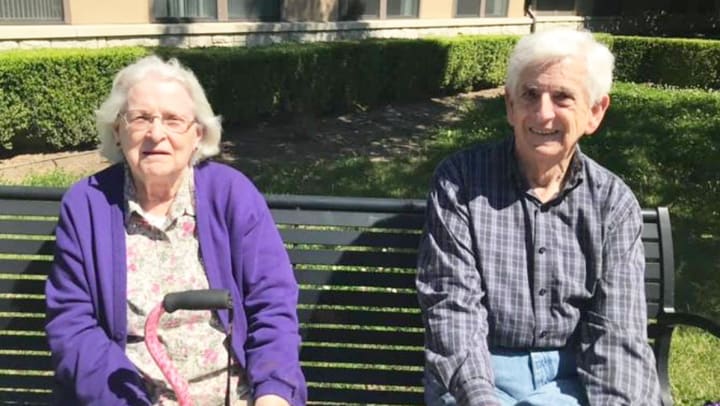May is Mental Health Awareness month. Now, more than ever, it’s important to focus on mental well-being and how we can all do our part to provide better access to care for those in need.
At our Anthem Memory Care communities, optimizing mental health has always held a central role within our guiding principles. We understand how important mental wellbeing is to all of us, but especially to those living with dementia and those who care for them.
Are you a family caregiver for a loved one with dementia? While many of the changes your loved one faces may be out of your control, it’s heartening to know that there are things you and your family can do to keep your loved one’s mental health and outlook positive.
Here are seven tips to help you better support their (and your own) mental health needs:
- Treat them as adults. That may seem obvious, but there is a tendency for many adult children to “talk down” to parents with dementia. Another is to speak, in their presence, of mom or dad in third person. It takes practice to re-wire this thinking. But it’s important to do so. Speaking adult-to-adult is not only more effective, it keeps dignity intact (for both of you).
- Acknowledge their feelings. Sometimes it feels easier to ignore a loved one’s complaints or tears. However it is important to do so for two reasons, 1) it may require attention and 2) ignoring it is an isolating move, for both of you.
- Eliminate unnecessary noise and stimulation. That includes noisy buildings, loud music playing, crowded areas and family events with lots of relatives and friends approaching them all at once.
- Engage in brain stimulating games and activities. These can range from board games to looking through a photo album together. Be sensitive to your loved one’s capabilities. Don’t over-reach, but don’t dumb-down an activity. Look for activities that require some concentration but are also fun.
- Explore opportunities for socialization. These are best accomplished with a visit from a trusted friend, neighbor or relative. Small groups work best. Arrange them for a time when your loved one is well rested. Visits to the park to watch children playing is also a great way to keep your loved one from feeling isolated.
- Schedule regular wellness check-ups. Make sure your loved one’s physical and mental health is being regularly monitored by a physician with experience in dementia. They will become a valuable resource for both of you.
- Be aware of trouble signs. No one knows your loved one like you do. Be aware of signs that they are experiencing issues that go beyond the day-to-day ups and downs. Don’t hesitate to reach out to a professional when this happens.
Finally, take care of your own health!
As a family caregiver you are under an enormous level of stress, 24/7. Your own needs must be taken into account. Make sure you are keeping up to date with your own check-ups and that you are taking advantage of relatives and friends who offer to help.
Remember, too, that at some point during your loved one’s journey it may make sense to consider a transition into an environment with professionals who are not only highly trained in dementia but are passionate about caring for those living with dementia.
Feel free to reach out to any of our communities for resources and information. We’re here to help!
(Our header image is of two residents of Chisholm Place Memory care in Wichita, Kansas taking a break to enjoy some sunshine after their morning walk!)
Since 2009,
Anthem Memory Care has been a haven for loved ones who need memory and dementia care. Our experienced, professional team expands over 20 communities with more than 1,300 suites designed for memory care needs. Each community offers numerous helpful amenities and resources, creating a nurturing and supportive environment that caters to the needs of our residents. Along with compassionate and personalized
memory care, we provide services in areas of wellness, health, and safety. We invite you to explore our services or contact us today if you have any questions.
